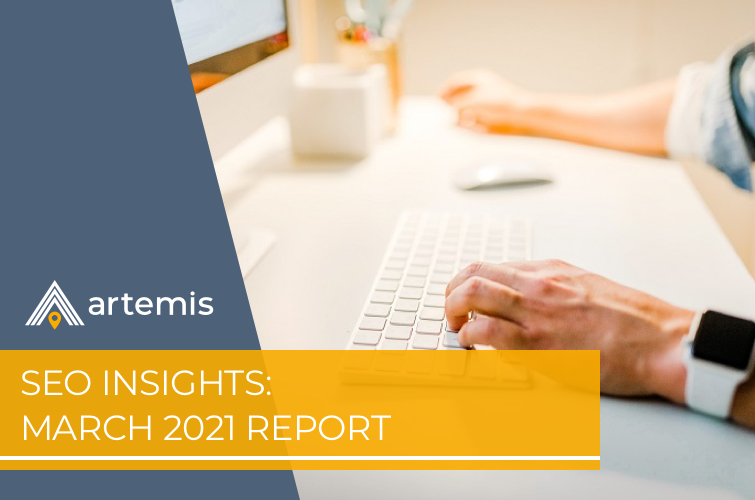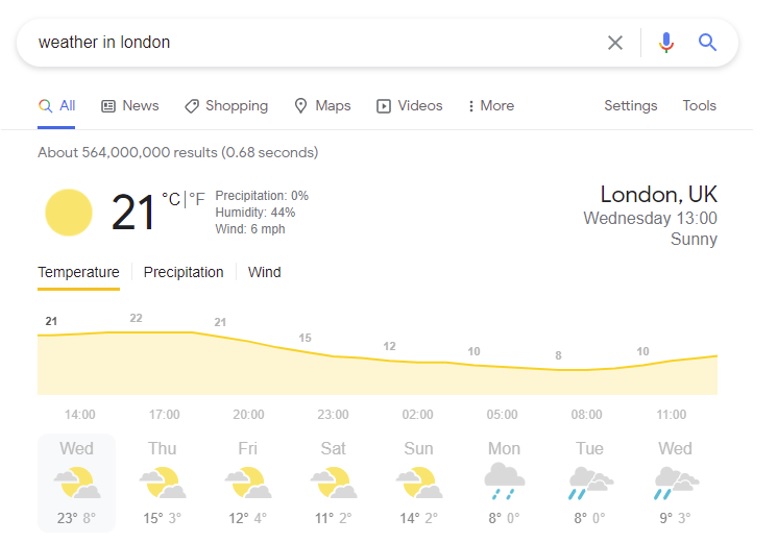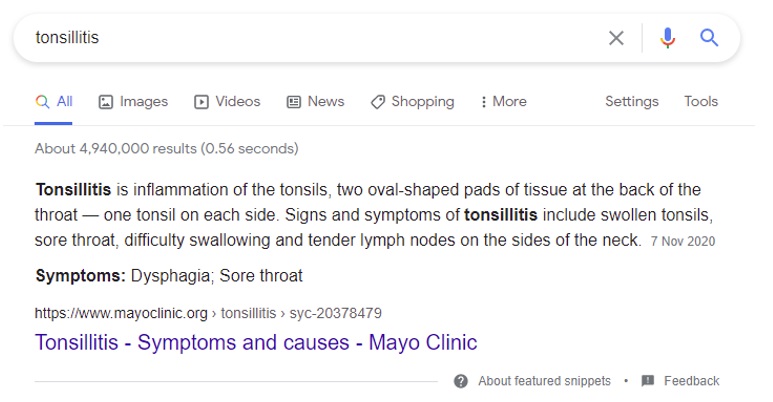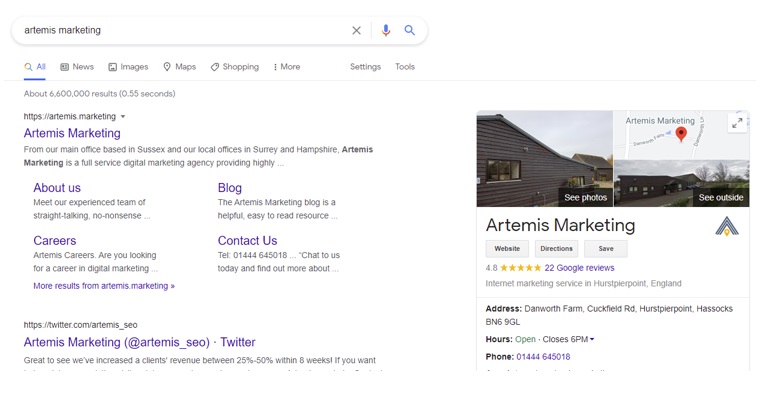SEO Insights – March 2021 Report

March was a relatively quiet month for search engine news but there were a couple of interesting new developments which are worth digging into a little deeper.
Zero-Click Searches
Over the years we’ve seen an increase in what are known as “zero-click searches”. These are searches on Google where the user does not click through to a result presented in the search results.
There are many reasons why this might happen but a large one is that Google will very often provide the answer directly to the user in the search results in the form of a featured snippet or publishing a fact. For example…
Searches for the weather:

Searches for information:

Searches for information about a business:

In this case, a searcher on desktop may be looking for our phone number, which Google is displaying in the knowledge panel on the right. The user does not need to click through to our website to find it.
These are just some examples of Google providing a better search experience for users by displaying helpful information at a glance which then may not yield a click-through. The user can still click on any of the results should they want to find out more.
In March, the website SparkToro released a report stating that only 35% of searches actually resulted in a click. Although their methodology in coming to this conclusion can be easily challenged, Google released a response to these claims stating that they send more traffic to the open web every year:
Google Search sends billions of clicks to websites every day, and we’ve sent more traffic to the open web every year since Google was first created. And beyond just traffic, we also connect people with businesses in a wide variety of ways through Search, such as enabling a phone call to a business.
The reality is that as search as evolved, our interactions with search engines has also evolved. We expect Google to know everything and we want answers to our questions presented to us quickly. We expect to not waste time looking for answers and clicking through to 10 different websites to find what we are looking for.
If we need to delve into a topic deeper we are then more accepting of the need to click through to various websites to find the information that we are looking for or to compare different products or service providers.
Having information available instantly is something we have become used to and we all generally welcome this evolution in search.
Ultimately, it’s not about traffic numbers, it’s about qualified visitors landing on a website. If fewer people click through to a website but those visitors are more likely to take an action, that’s all that really matters.
Core Web Vitals FAQs
As we’ve mentioned over the past few months, Google will soon be releasing its “Page Experience Update” which will take website usability, security and speed into account as ranking factors.
Part of this update focuses on the Core Web Vitals metrics, the data for which can be found in Google Search Console.
There is a significant amount of chatter online about this new update with many expecting it to be the silver bullet for improved Google rankings. However, that really is not going to be the case.
Because of the number of questions that people are asking about this update, and in particular Core Web Vitals, Google released new FAQs to answer some of the more common questions being raised.
What’s interesting, and expected, is what they quite clearly have stated in the FAQs about the influence of this update on the search results:

The best, most authoritative and useful content will always outperform a page with a better page experience. This is, of course, completely as it should be. Users want to find information about what they need to know, even if the page it’s on isn’t absolutely perfect.
Where the page experience update may have an influence is when there are two pages with great content and authority and Google rates them at a very similar level. At that point, the page with the better page experience metrics may have a slight edge over the not-so-perfect one.
The rest of the time the impact will be minimal.
However, it’s still very important to create a great user experience as slow or confusing web pages can negatively impact conversions. Page load speed and usability have always been a key focus for us at Artemis and over the past few months we have begun working on all of our clients’ websites to bring their Core Web Vitals metrics in line with Google’s expectations for the new update, if they aren’t already there.
Google’s aim with this new update is to subtly force webmasters and businesses to really focus on their users. We welcome this new update with open arms as we all suffer the frustrations with websites when they don’t respond well, they are not mobile-friendly or they are not secure.
